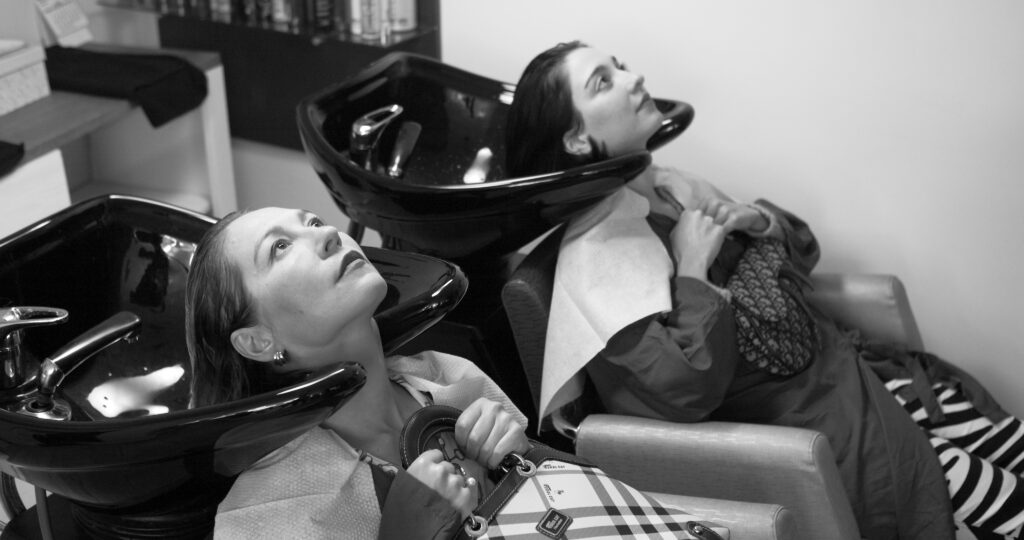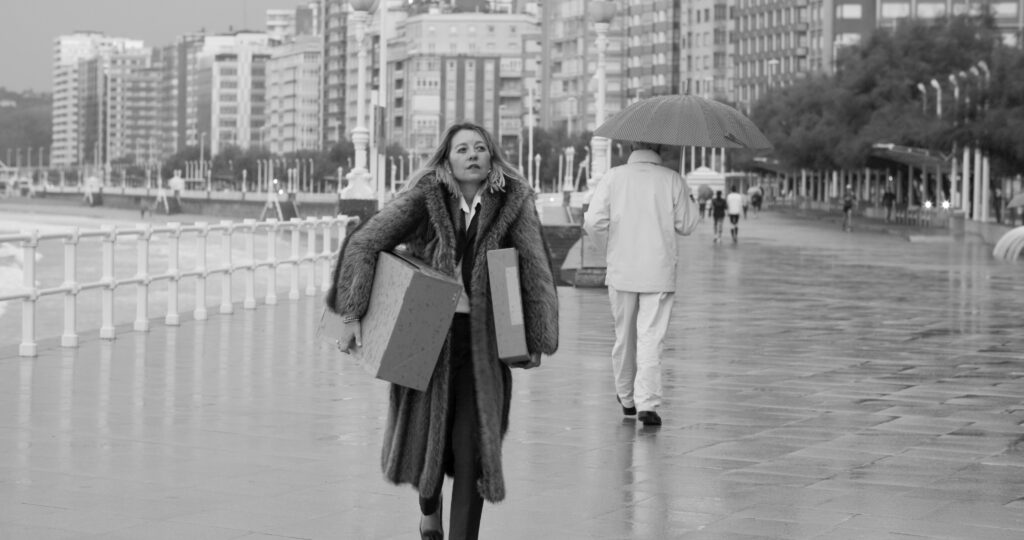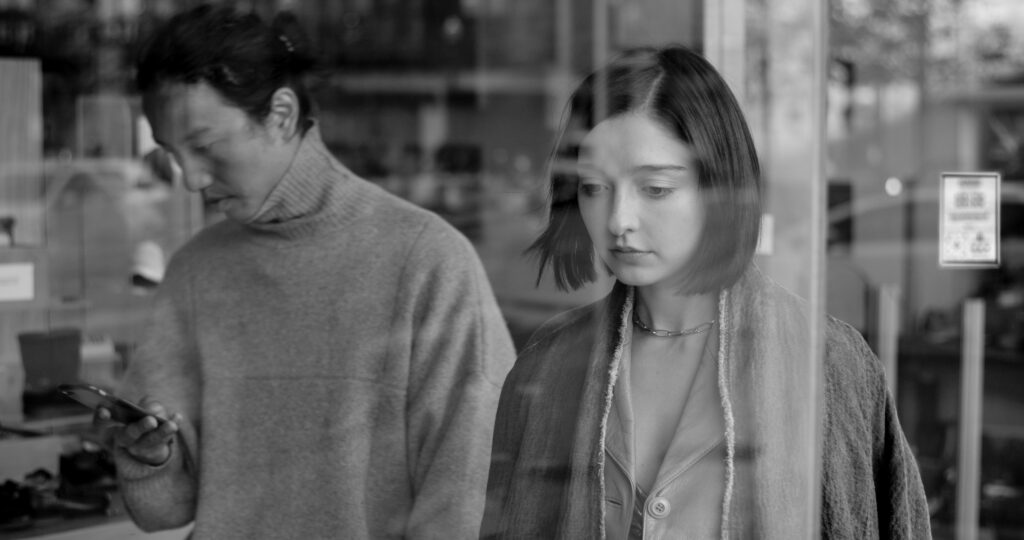After her father’s death, Leo returns from London to a seaside town in the north of Spain to move back in with her mother. Broke and with increasing debts, they slip further into poverty. It is just a matter of time until they will be evicted. But they also narrate their own stories and identities; imitating, grifting and keeping up appearances while the facade slips around them. Leo weighs up the options of badly paid sex work or badly paid fashion jobs, navigating her mother’s more eccentric alternate reality of rich boyfriends, cat memorabilia and expensive dresses.
The film and its characters are composites of real people and experiences, including Ulman’s own life growing up in Gijón when the family immigrated from Argentina. The coastal setting—once reliant on the coal industry, followed by tourism, and hit hard by the 2008 financial crisis—is both in the background and foreground of the film. It is a character itself, the out-of-season monotone weather reflected, albeit lovingly, in the film’s black and white cinematography. The high unemployment and lack of options is felt and seen. The empty shop fronts, deserted promenades and window displays feel stuck in time. Here too, reality slips between the constructed image and lived experience.
Instead of a melodramatic framing, Ulman’s film is a sum of small parts. It draws out its story from small details, dialogues, emotive, kitschy objects and deadpan humour. The result is a portrait of transaction and debt in the everyday economy of appearances, as much about image and keeping face as about material conditions. El Planeta is a film about holding things together, daydreaming and performance as a means of survival. —Christina Demetriou




